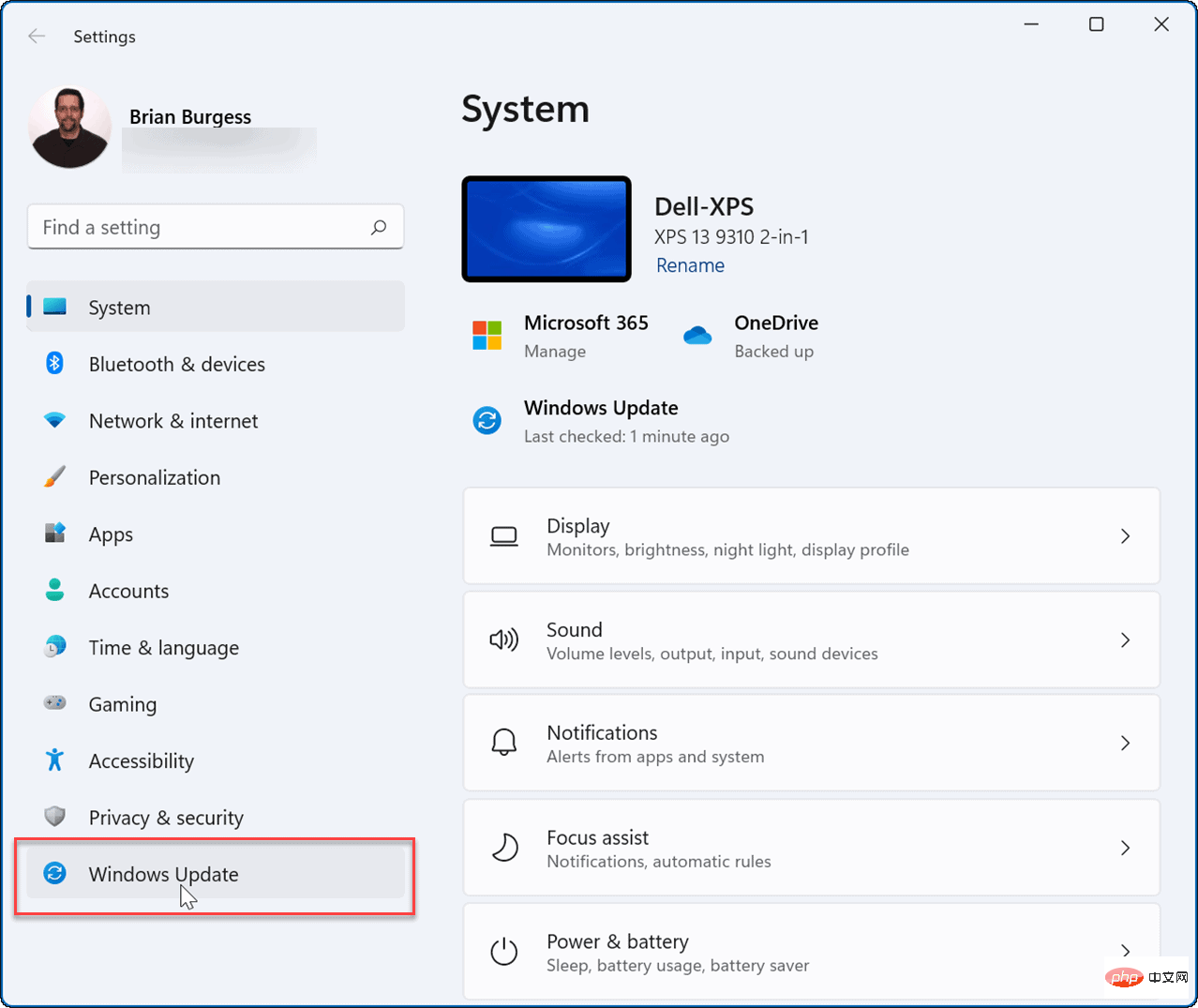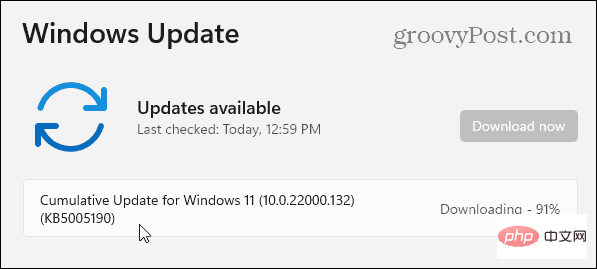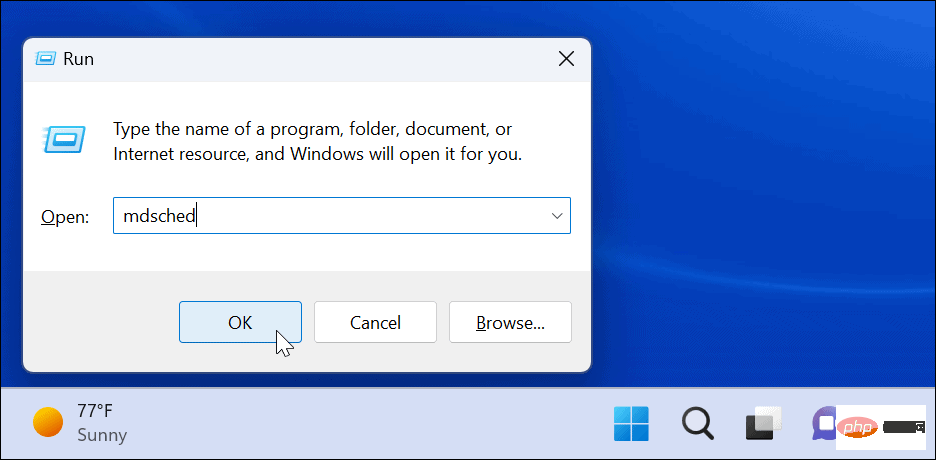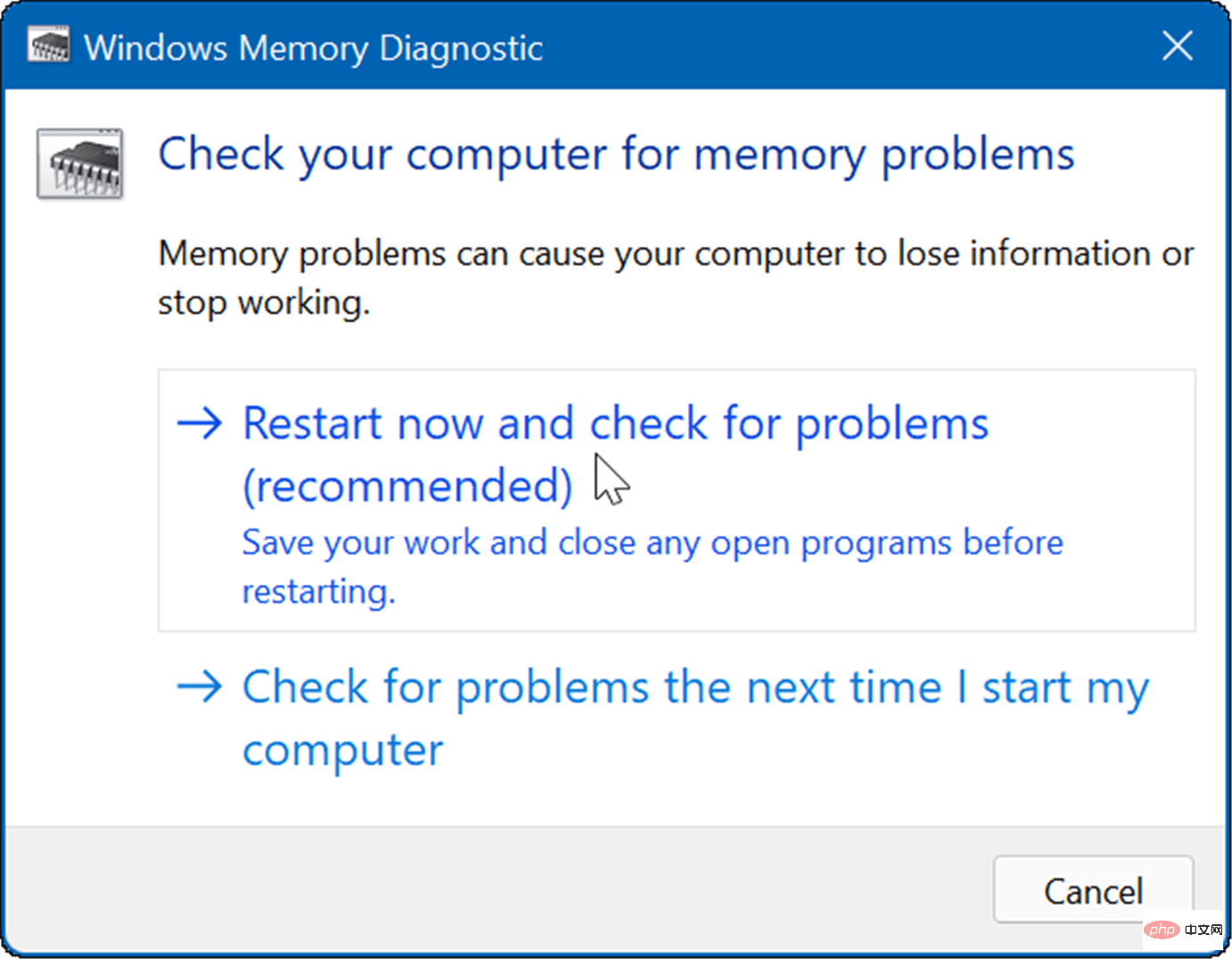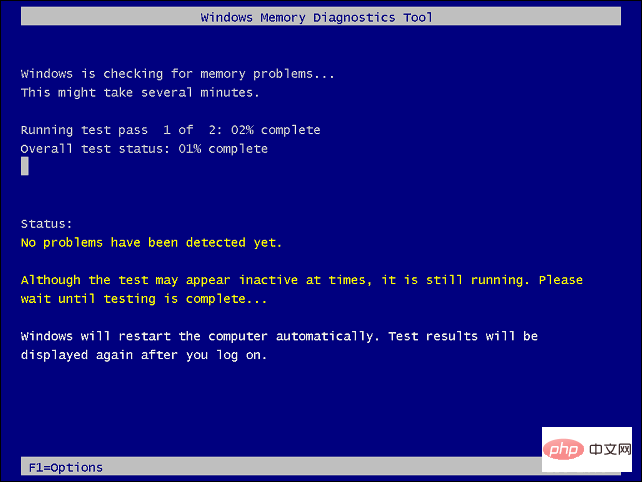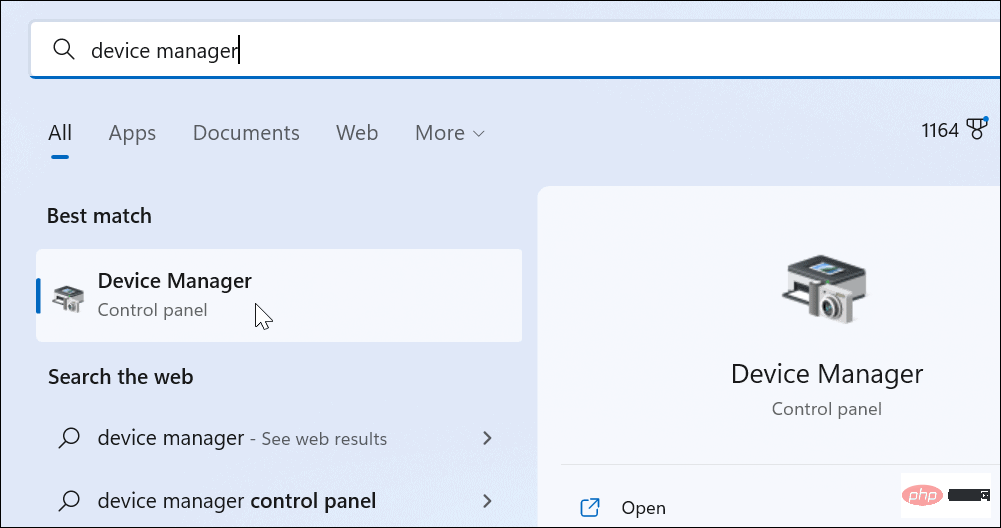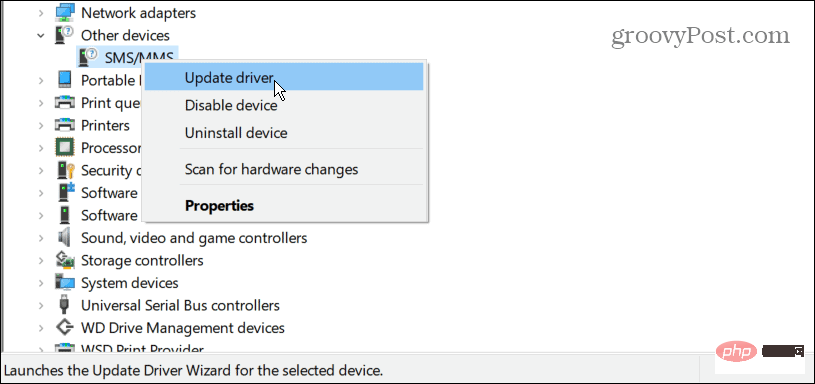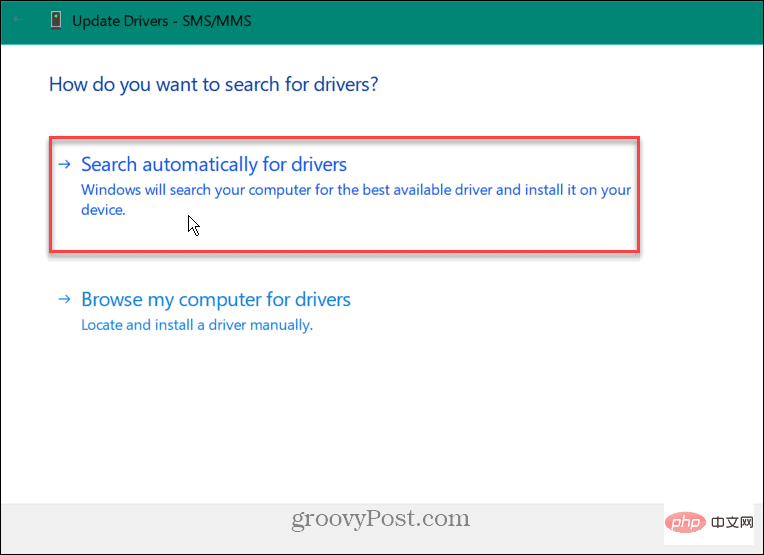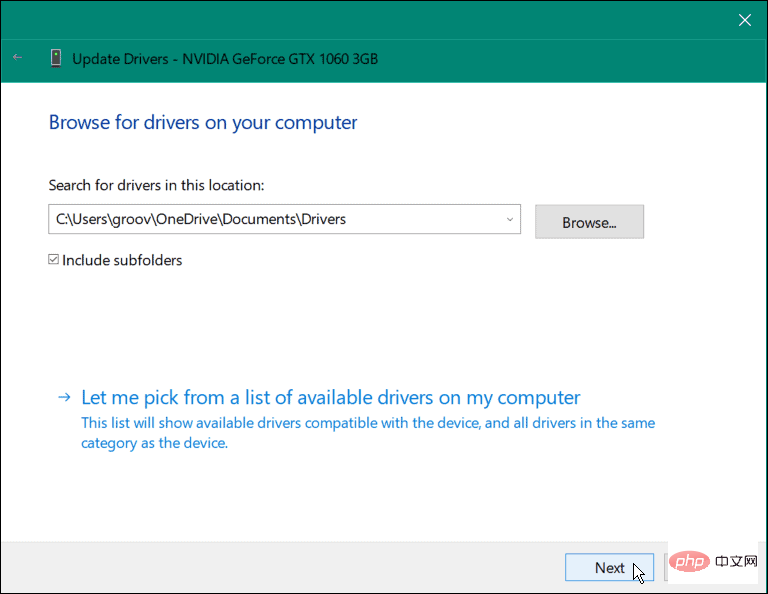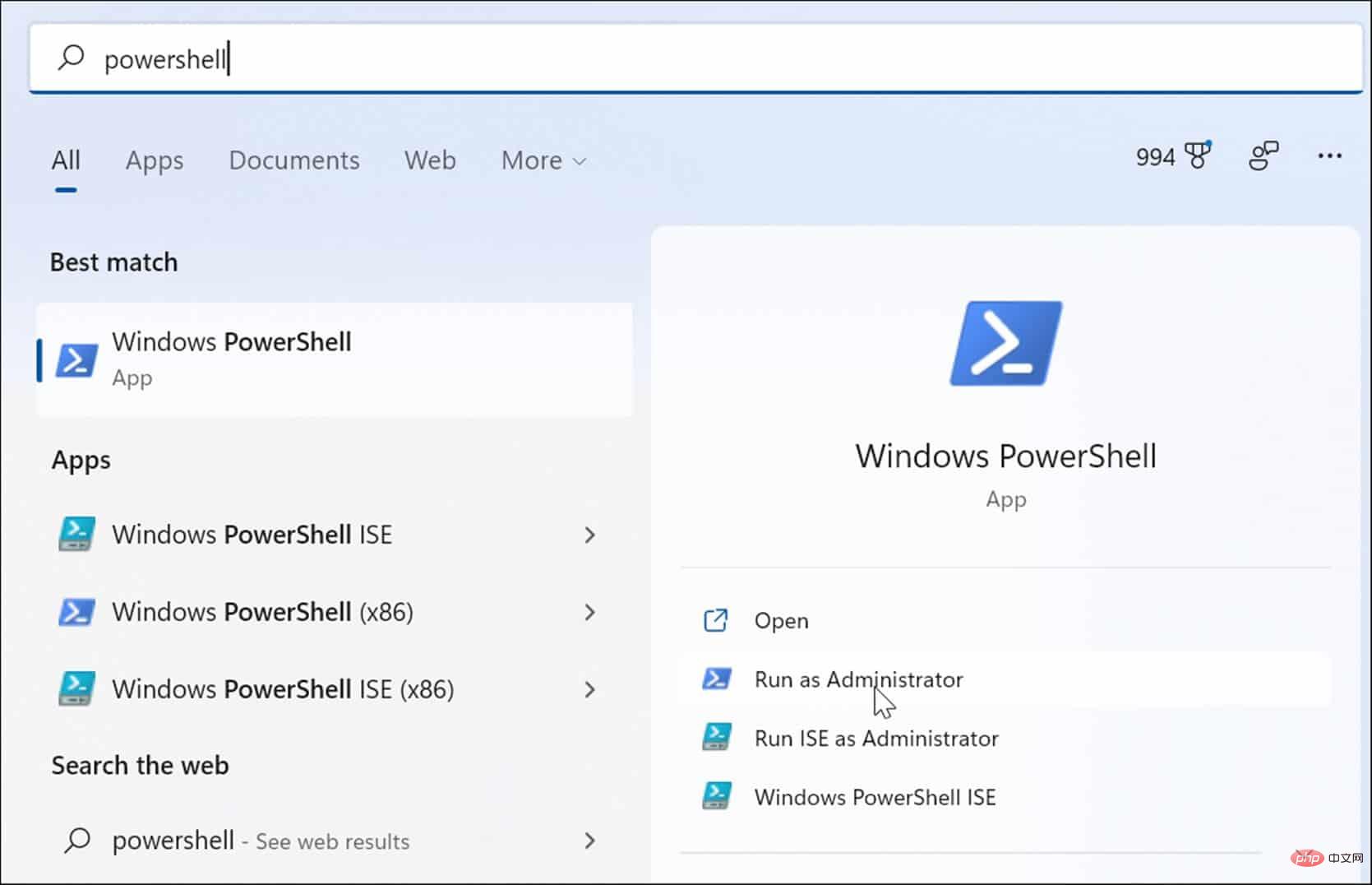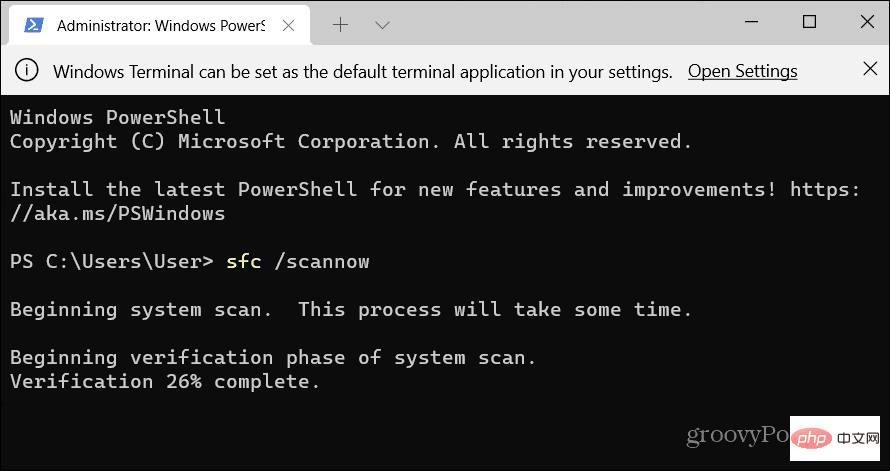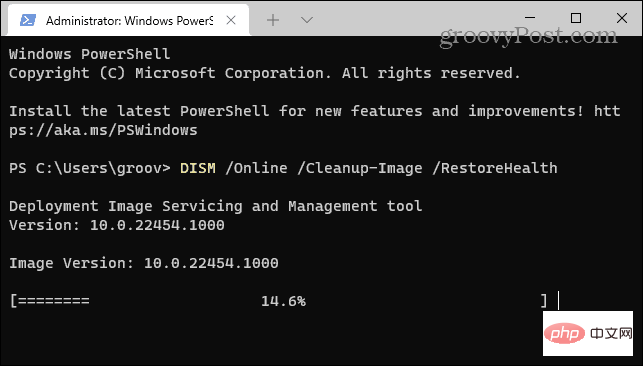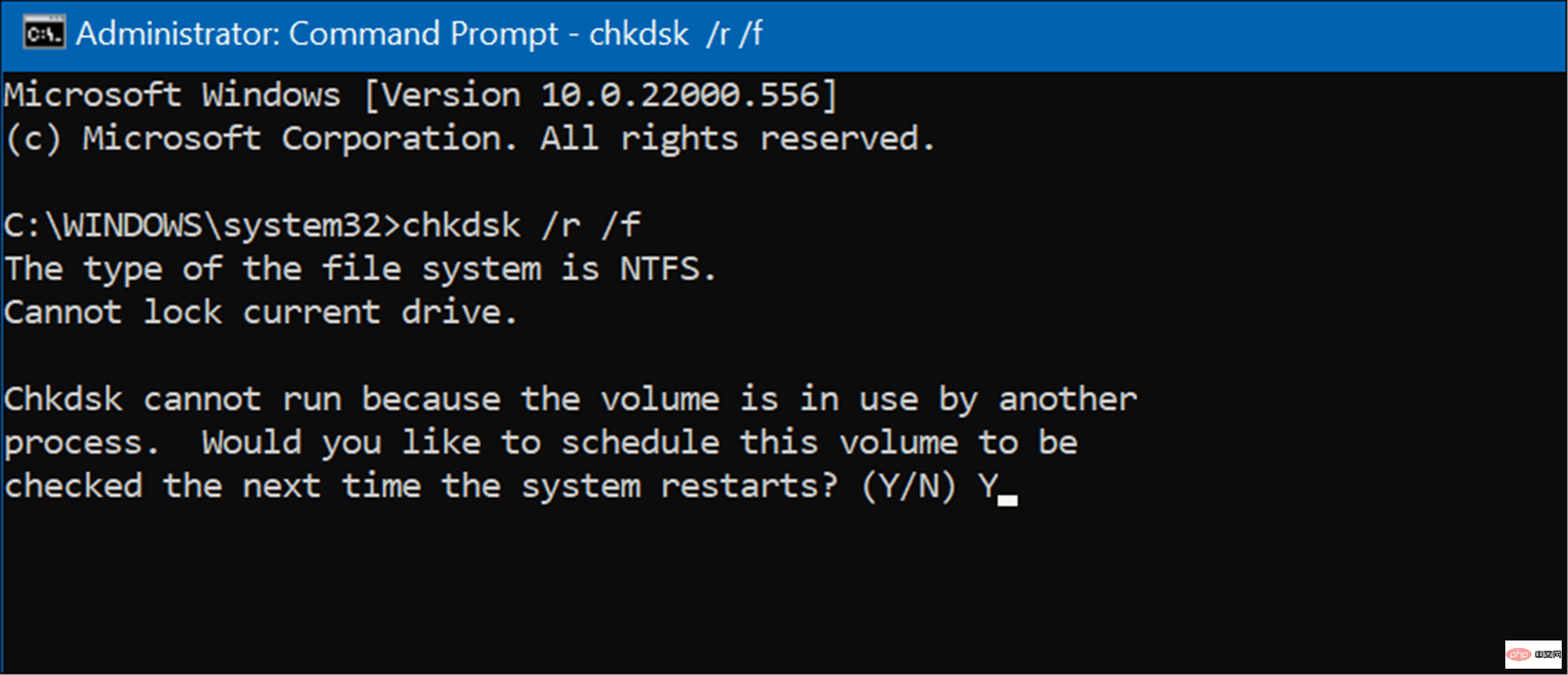How to fix clock watchdog timeout on Windows
When you get a Blue Screen of Death (BSOD) error when booting your PC, you might think your system is done. But there's no need to panic.
Clock_Watchdog_Timeout BSOD errors are related to issues with communication between your system and the CPU. This is a system-level process called "system interrupt" and is normal behavior. However, if your system spends too long in the interruption phase, a blue screen error will occur.
You may be able to resolve the issue with a simple reboot, or you may need to perform additional troubleshooting steps from the command line. So, here’s how to fix clock watchdog timeout on Windows.
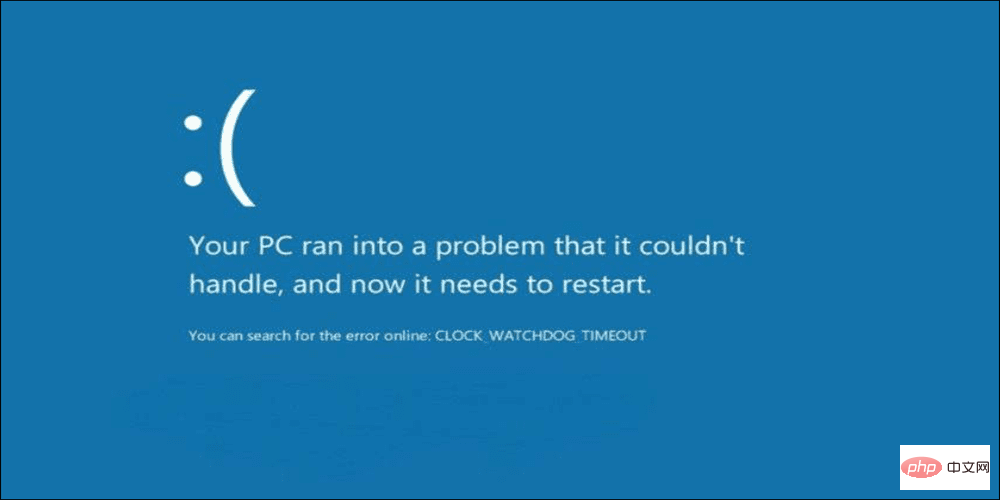
Restart your PC
The first time you get a clock watchdog timeout BSOD on Windows, the first step is to reboot the system and reinstall the external equipment. Since BSOD errors prevent you from entering the Windows environment, you need to hold down the physical power button for 10 seconds until your PC shuts down completely.
Unplug all peripherals connected to your PC, such as mouse, keyboard, printer, and monitor. If you have a desktop, reinstall the RAM, SSD (if applicable), and GPU, and check for loose cables. Reconnect all external devices to ensure secure connections. Wait 30 to 60 seconds, then press the Power button again to restart.
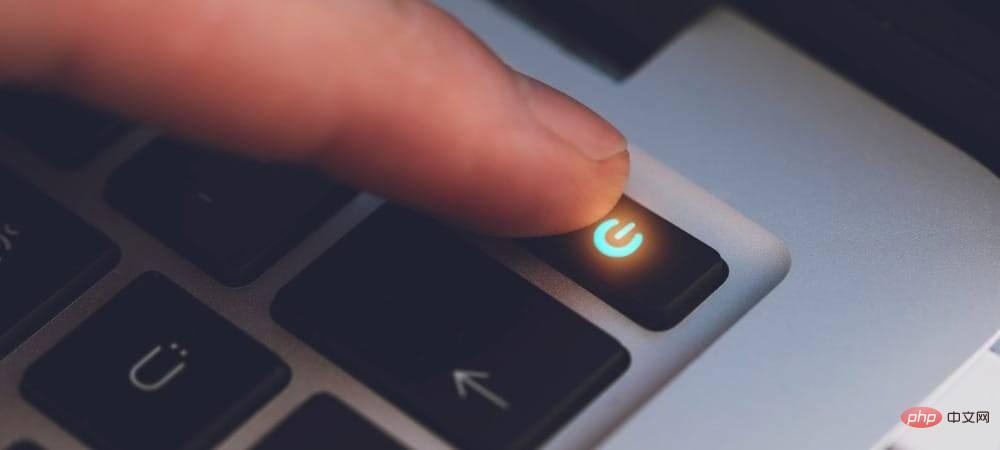
Check for Windows Updates
Windows usually updates in the background; however, you may not have the latest updates. For example, a pending update might contain a bug fix that your PC is waiting for.
Do the following to get pending updates:
- Click the Windows key IOpen Settings and select Windows Update.

- Click the Check for Updates button and install any updates it finds. A reboot may be required to complete the process.

Run the Windows Memory Diagnostic Utility
Memory problems can cause errors that you need to scan for errors. You can check your system's RAM by running Microsoft's built-in Windows Memory Diagnostic utility.
To run the Windows Memory Diagnostic Utility, do the following:
- Press Windows key ROpen "Run ”Dialog box.
- Type mdsched and click OK.

- When the Windows Memory Diagnostic Tool opens, click the Restart now and check for problems option.

- Your PC will restart and the utility will run a diagnostic scan of your system RAM. If any issues are detected, the diagnostic tool will automatically fix the issues it finds.

NOTE: This utility will take a long time to run. If it doesn't find the problem but you need a second opinion, try the free and open source utility memtest86.
Manage Hardware Drivers
Updating hardware drivers can fix a range of issues, including clock watchdog timeout errors. You are supposed to receive driver updates through Windows Update, but sometimes problems can occur. However, you can have Windows search for specific hardware drivers or install them yourself.
To manually check for driver updates, use the following steps:
- Press the Windows key or click the Start button.
- Type Device Manager and click the Device Manager Control Panel option under Best Match.

- Check the list for any yellow error indicators. If found, right-click on the listed device and select Update Driver from the menu.

- Select Automatically search for drivers and let Windows update drivers automatically.

- If the Watchdog error persists and Windows does not find the driver, you can install the driver manually.

Run DISM and SFC scans
Run DISM and SFC scans to fix BSOD errors. Both utilities scan for corrupted system files and replace them with working files. System File Checker(SFC)The scan finds file errors and replaces corrupted files with working files stored on the drive.
Deployment Image Servicing and Management (DISM)The scan will detect errors and replace corrupted files with working files downloaded directly from Microsoft servers.
To run SFC and DISM scans:
- Click the Start button or press the Windows key and search for PowerShell.
- Select the Run as administrator option to the right of the results.

- After opening PowerShell, run the following command in the terminal.
sfc /scannow
Copy after login ##After a
##After a - SFC scan, a best practice is to run a DISM scan - especially if SFC cannot replace a specific file .
- Run PowerShell as Administrator and run the following commands.
DISM /Online /Cleanup-Image /RestoreHealth
Copy after login
Chkdsk utility will scan the hard drive to make sure it is error-free.
To run a Chkdsk scan:
- Launch
- PowerShell Terminal as Administrator Or Command Prompt. Run the following command and press
- Enter.
chkdsk /r /f
Copy after loginThe ChkDsk utility will prompt you to scan the next time you reboot - type - Y and press Enter.

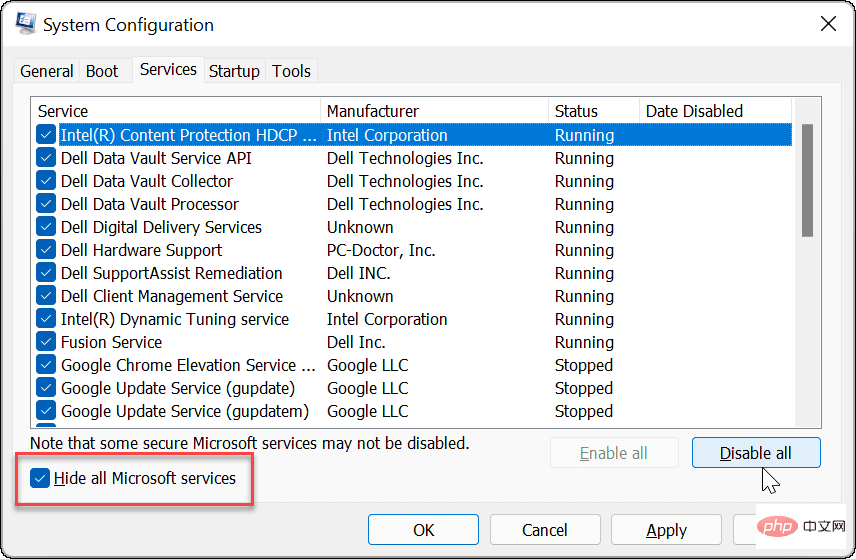
Advanced Boot Options, make sure you select Enable Safe Mode with Command Prompt. You can start Command Prompt in safe mode and run utilities such as ChkDsk, SFC, and DISM scanning by selecting this option.
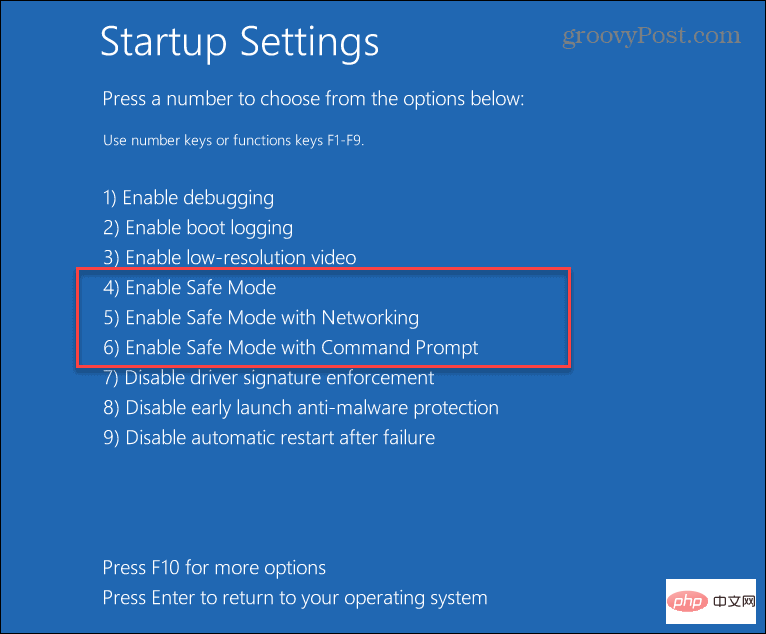
If all else fails, you can reset Windows to factory settings—but only as a last resort. Before resetting Windows, back up all necessary files to a cloud service like OneDrive or a paid service like BackBlaze. Additionally, create a complete system backup so you can restore your system quickly.
The above is the detailed content of How to fix clock watchdog timeout on Windows. For more information, please follow other related articles on the PHP Chinese website!

Hot AI Tools

Undresser.AI Undress
AI-powered app for creating realistic nude photos

AI Clothes Remover
Online AI tool for removing clothes from photos.

Undress AI Tool
Undress images for free

Clothoff.io
AI clothes remover

Video Face Swap
Swap faces in any video effortlessly with our completely free AI face swap tool!

Hot Article

Hot Tools

Notepad++7.3.1
Easy-to-use and free code editor

SublimeText3 Chinese version
Chinese version, very easy to use

Zend Studio 13.0.1
Powerful PHP integrated development environment

Dreamweaver CS6
Visual web development tools

SublimeText3 Mac version
God-level code editing software (SublimeText3)

Hot Topics
 1664
1664
 14
14
 1423
1423
 52
52
 1317
1317
 25
25
 1268
1268
 29
29
 1247
1247
 24
24
 What is the reason why PS keeps showing loading?
Apr 06, 2025 pm 06:39 PM
What is the reason why PS keeps showing loading?
Apr 06, 2025 pm 06:39 PM
PS "Loading" problems are caused by resource access or processing problems: hard disk reading speed is slow or bad: Use CrystalDiskInfo to check the hard disk health and replace the problematic hard disk. Insufficient memory: Upgrade memory to meet PS's needs for high-resolution images and complex layer processing. Graphics card drivers are outdated or corrupted: Update the drivers to optimize communication between the PS and the graphics card. File paths are too long or file names have special characters: use short paths and avoid special characters. PS's own problem: Reinstall or repair the PS installer.
 How to speed up the loading speed of PS?
Apr 06, 2025 pm 06:27 PM
How to speed up the loading speed of PS?
Apr 06, 2025 pm 06:27 PM
Solving the problem of slow Photoshop startup requires a multi-pronged approach, including: upgrading hardware (memory, solid-state drive, CPU); uninstalling outdated or incompatible plug-ins; cleaning up system garbage and excessive background programs regularly; closing irrelevant programs with caution; avoiding opening a large number of files during startup.
 How to solve the problem of loading when PS is always showing that it is loading?
Apr 06, 2025 pm 06:30 PM
How to solve the problem of loading when PS is always showing that it is loading?
Apr 06, 2025 pm 06:30 PM
PS card is "Loading"? Solutions include: checking the computer configuration (memory, hard disk, processor), cleaning hard disk fragmentation, updating the graphics card driver, adjusting PS settings, reinstalling PS, and developing good programming habits.
 Does mysql need the internet
Apr 08, 2025 pm 02:18 PM
Does mysql need the internet
Apr 08, 2025 pm 02:18 PM
MySQL can run without network connections for basic data storage and management. However, network connection is required for interaction with other systems, remote access, or using advanced features such as replication and clustering. Additionally, security measures (such as firewalls), performance optimization (choose the right network connection), and data backup are critical to connecting to the Internet.
 Is PS slow loading related to other programs that are running?
Apr 06, 2025 pm 06:03 PM
Is PS slow loading related to other programs that are running?
Apr 06, 2025 pm 06:03 PM
The secrets to mastering Office software include: understanding different versions and platforms, correctly installing and configuring, proficient in using the software interface, in-depth understanding of feature operations, application collaboration and sharing functions, utilizing templates and styles, mastering advanced skills, and solving common problems. In addition, you need to choose a version that suits your needs, make good use of templates and styles, develop backup habits, and learn shortcut keys and advanced techniques to improve efficiency.
 Is slow PS loading related to computer configuration?
Apr 06, 2025 pm 06:24 PM
Is slow PS loading related to computer configuration?
Apr 06, 2025 pm 06:24 PM
The reason for slow PS loading is the combined impact of hardware (CPU, memory, hard disk, graphics card) and software (system, background program). Solutions include: upgrading hardware (especially replacing solid-state drives), optimizing software (cleaning up system garbage, updating drivers, checking PS settings), and processing PS files. Regular computer maintenance can also help improve PS running speed.
 Can mysql run on Windows
Apr 08, 2025 pm 01:54 PM
Can mysql run on Windows
Apr 08, 2025 pm 01:54 PM
Running MySQL on Windows is feasible, but challenges such as port conflicts, permission issues, and environment variable settings need to be considered. Installation issues can be solved by customizing configuration files, adjusting user permissions, and setting environment variables correctly. Additionally, the appropriate storage engine should be selected, tweaked configuration files, and SSDs should be used to optimize performance.
 How to solve the problem of loading when the PS opens the file?
Apr 06, 2025 pm 06:33 PM
How to solve the problem of loading when the PS opens the file?
Apr 06, 2025 pm 06:33 PM
"Loading" stuttering occurs when opening a file on PS. The reasons may include: too large or corrupted file, insufficient memory, slow hard disk speed, graphics card driver problems, PS version or plug-in conflicts. The solutions are: check file size and integrity, increase memory, upgrade hard disk, update graphics card driver, uninstall or disable suspicious plug-ins, and reinstall PS. This problem can be effectively solved by gradually checking and making good use of PS performance settings and developing good file management habits.



